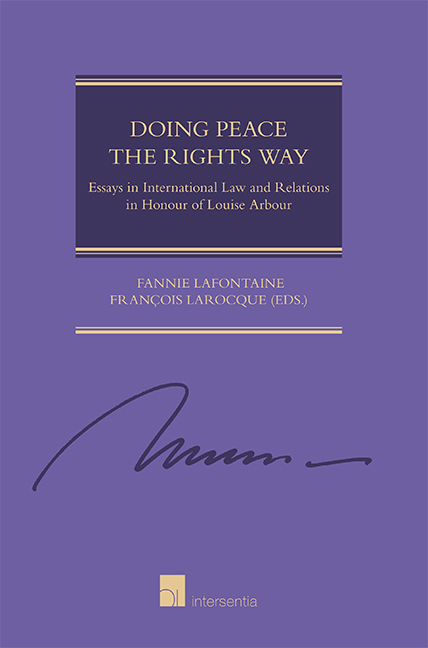Foreword
Published online by Cambridge University Press: 13 April 2019
Summary
Lasting peace on Earth remains one of humankind's most earnest aspirations. As our population grows and our collective impact on this “pale blue dot” (to borrow Carl Sagan's imagery) is felt with increasing urgency, human societies must strive continuously to find new paths toward prosperous and peaceful coexistence. The manner in which we rise together to meet the ongoing challenges of our time – war, terrorism, environmental degradation, inequality and oppression – will ultimately determine the future of our species. It is only through multilateralism, dialogue and coordinated action that we can one day achieve the peaceful planet that our poets have imagined and that our children dearly deserve.
The edifice of this fairer, more peaceful world must be built on the pillars of security, inclusive development, the rule of law and respect for human rights. Together, these pillars mutually reinforce one another, all while remaining ends unto themselves. They also provide the United Nations with its raison d’être, grounded in the spirit of the UN Charter and the Universal Declaration of Human Rights. No country can develop in the long term without security and stability, nor can one remain stable without inclusive development that lift s up the people and ensures their welfare. But these must in turn be based on the rule of law and respect for human rights. An edifice of peace and prosperity is always weakened when public power is left unchecked and human dignity is forfeited for security or profit.
In a thought-provoking examination of these themes comes this new collection of texts: Doing Peace the Rights Way. Dedicated to Louise Arbour, it explores an impressive variety of issues and perspectives on the enforcement of human rights and the pursuit of peace. Throughout the various posts that she has held during her remarkable career, Louise Arbour has always championed the cause of human rights, framing her analyses and arguments to applicable law, urging nations to cooperate and unite by complying with their international human rights obligations. I came to see this first hand when I nominated her to serve as UN High Commissioner for Human Rights during my tenure as Secretary-General.
- Type
- Chapter
- Information
- Doing Peace the Rights WayEssays in International Law and Relations in Honour of Louise Arbour, pp. v - viPublisher: IntersentiaPrint publication year: 2019



